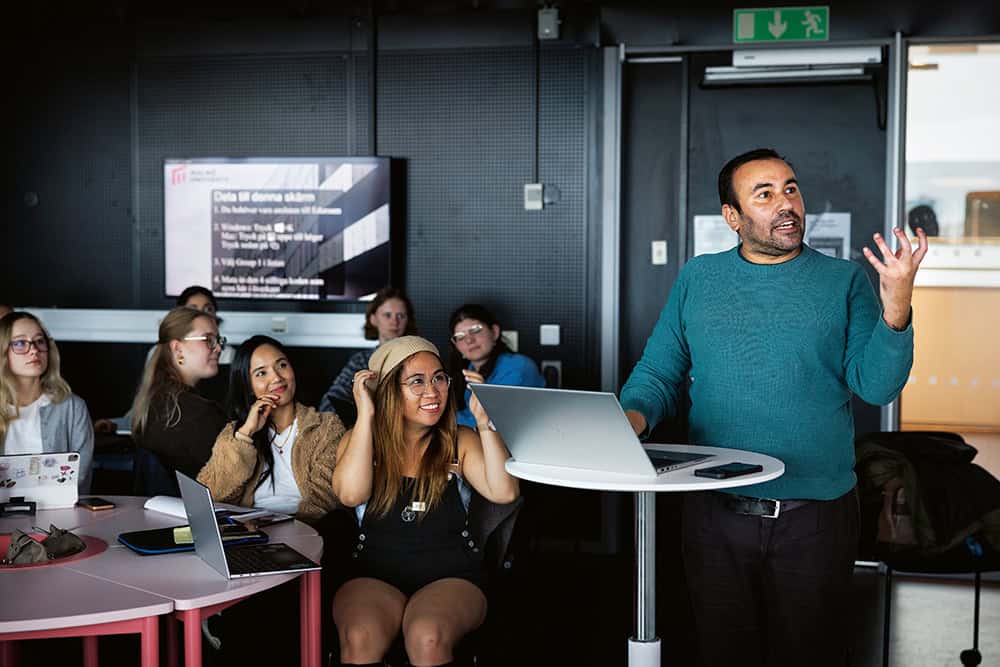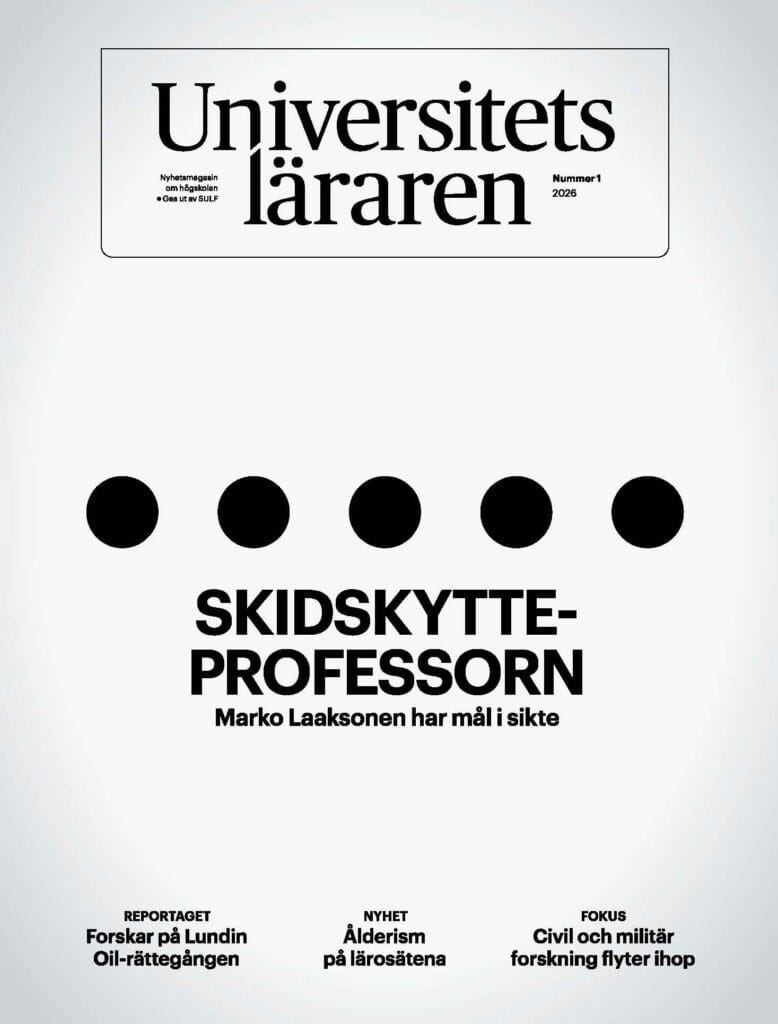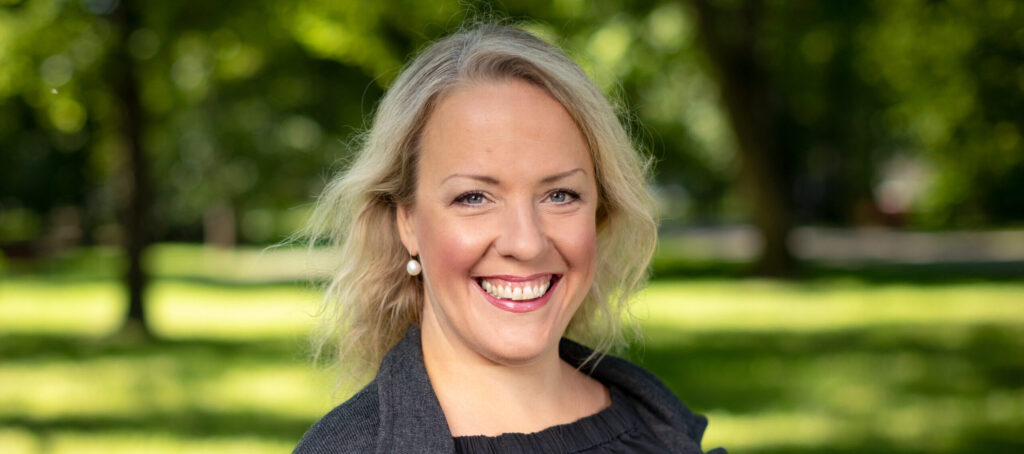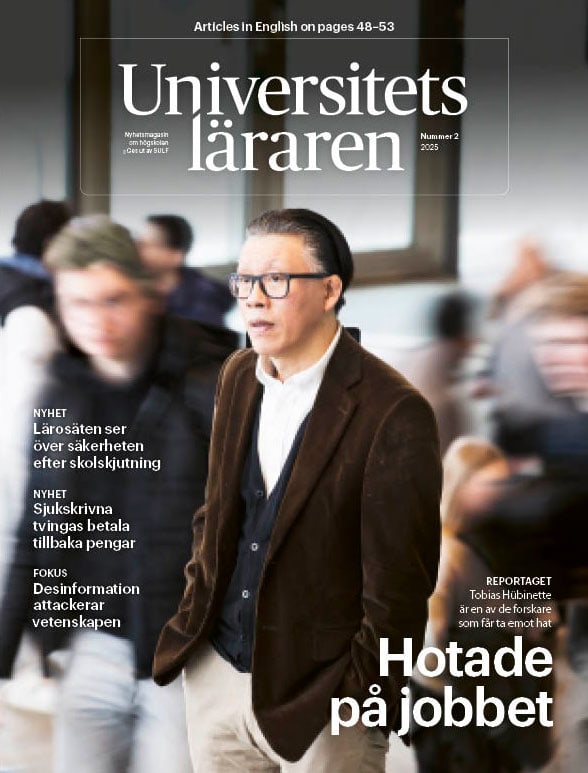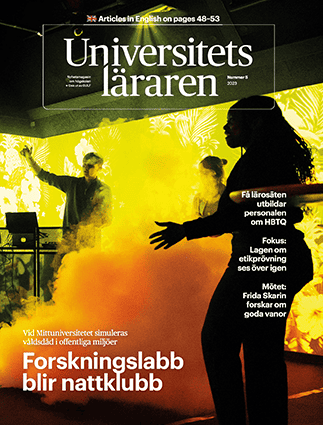Your heart begins to race. Your palms start to sweat. “Can they see that I’m nervous? They’ll think I’m terrible. What if I black out?”
This is a common experience among the students who have plucked up the courage to apply for the Dare to Speak course offered at the University of Borås. The course allows them to practise participating orally, taking account of the difficulties they have. For some, it is about daring to give a presentation in front of their teacher and fellow students; for others it is about just daring to raise their hand to ask a question.
Susanne Evertsson, who runs the course, is a student counsellor. An important component of the course is helping the participants to understand the mechanisms behind their physical discomfort and negative thoughts. She tries to normalise the fears and get the students to challenge them.
Some have been spared making presentations during their school years. This is a disservice, says Susanne Evertsson, because research shows that exposure and practice help people to deal with social fears. University teachers can also help to normalise these feelings.
“Tell them that most people find public speaking difficult, and that presenting is part of their education. That they are not judged on whether they put on a brilliant performance, but on whether they have understood the course content.”

Susanne Evertsson
Student counsellor at the University of Borås
If the student has told the teacher about their difficulties, that provides an opportunity for dialogue.
“Ask them what would make it easier for them. For example, whether they would like to be asked to go first so that they can get it over with.”
Social anxiety is a psychiatric diagnosis. Around ten per cent of students are estimated to suffer from it, and it can become a handicap later in life. The knowledge that oral participation and presentations are required in higher education may prevent people with social anxiety from even applying. Others start university but then drop out.
Supporting these students is therefore an important inclusion issue, says Zelal Bal, a senior lecturer in political science at Mälardalen University. Together with a colleague, she has conducted an as-yet unpublished study on university teachers’ experiences of dealing with quiet students and those with social anxiety. For the teacher, it is a balancing act to not exclude the student while still adhering to the course objectives and ensuring that they do not do the student that disservice in their course adaptations.
“The teacher does not have to change the form of the examination from oral to written, but perhaps they could require the presentation to be made in front of a small number of people,” she says.

Zelal Bal
Senior lecturer in political science at Mälardalen University
A more general pedagogical approach could be to allow students to practise speaking in smaller groups and more regularly, not just for examinations and assessments.
In her own seminars, Bal usually poses a question for students to discuss with the person next to them. She walks around the room and listens, then the students report back to the whole group.
“In that way, maybe I will pick up on something and can say ‘In your group I heard you discussing this. Would any of you like to raise it?’ It can then be easier for them to join in.”
Another strategy could be to start a seminar by asking all the students in turn to briefly answer a question. This could be about what they think is particularly important or interesting in the material they are going discuss. The teacher can then use this information to steer the discussion towards aspects that engage the students.
Supporting quiet students
- Normalise the fact that public speaking can be scary.
- Practise continuously in small groups.
- Refer students to the student health services and the educational support provided by the higher education institution.




